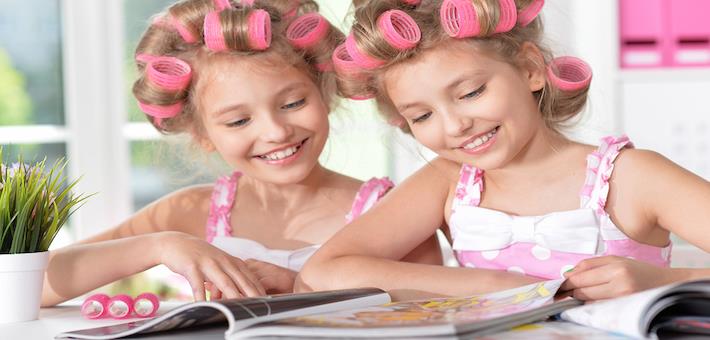
Judged by the Cover: Media Make Children Believe Appearance is Important
A study in Journal of Children and Media shows that after using media, children believe that other children judge them based on how they look. The researchers found that children believe that they have to meet the beauty ideals they see in the media. In addition, children also think that especially children from the other sex expect them to meet the high appearance standards set by the media.
Take aways
- The more children use media, the more they think that other children judge them based on how they look.
- This is because children have the idea that they have to meet the beauty ideals of the people they see in the media.
- Also, by using media children get the idea that especially children from the others sex expect them to meet the high appearance standards.
- For parents, practitioners and educators it is important to be aware of the fact that media exposure influences the extent to which children ascribe their personal worth to their appearance.
Study information
The question?
What is the role of the total amount of television and magazine exposure on the idea that one’s personal worth is related to one’s physical appearance?
Who?
1976 teens aged 10 to 15 years (mean age: 12 years; 47% girls)
Where?
Belgium
How?
Children completed a questionnaire containing questions about the total amount of time they read magazines and watch television (e.g., "How frequently do you watch television from 7:00 am to 2:00 am?”). They also indicated whether they thought that others evaluated their appearance for example by answering questions such as “I compare my body to the bodies of TV and movies stars”, and how they expect that children from the other-sex perceive their appearance (e.g., Boys were asked to what extent they thought that girls expect boys to be muscled).
The researchers also measured how much impact the children thought that their appearance had (e.g., "My value as a person depends upon how I look"), and how often they spend time with a mixed-sex peer group (e.g., "How often do you spend free time after school with a group of boys and girls?").
Facts and findings
- The more children watched television and read magazines, the more they thought that they were judged based on how they looked.
- For girls, this can be explained by the finding that girls felt like they had to meet the appearance ideals of for example thin-ideal models in the media. Moreover, girls also thought that boys expected them to meet these high standards set by the media.
- The same explanations were found for boys, but only after reading magazines and not after watching television.
- Children's idea that others evaluate them based on their appearance did not depend on the time they spent with children from the other sex. Thus, for example, girls who spent more time with boys did not differ from girls who spent less time with boys in how they felt about other children judging them based on how they look.
- Critical note: We should interpret the results with caution as the direction of cause and effect is not clear. For example, it is possible that using media depends on the idea that others evaluate them based on their appearance.